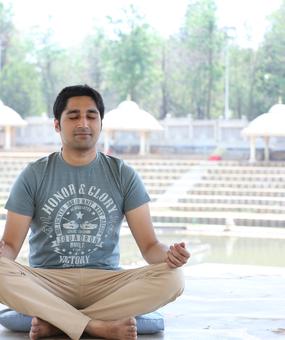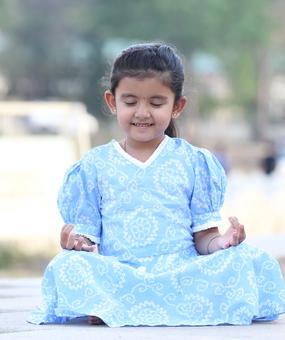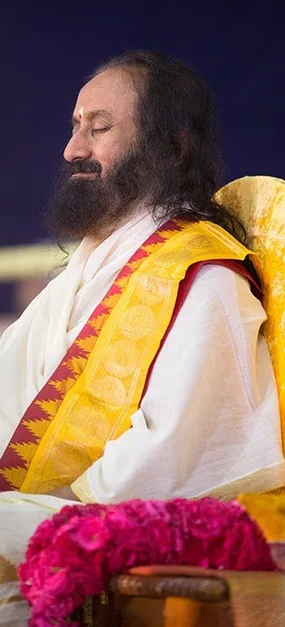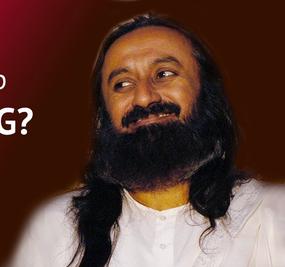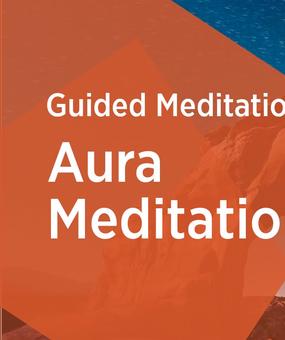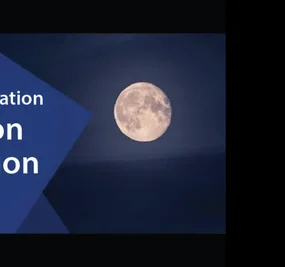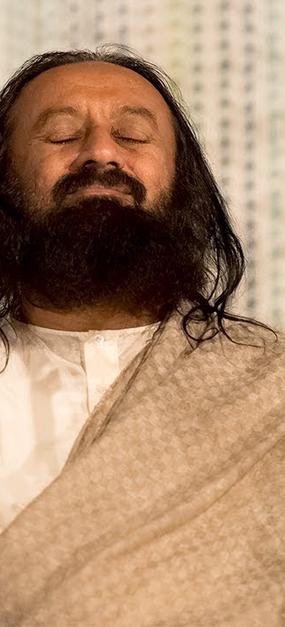What Is Meditation?
Meditation is a journey from sound to silence. It is a skill to calm your mind and realize the abundant source of energy within you. It is the simple art of doing absolutely nothing, not even thinking, so you don’t concentrate but you de-concentrate. Effortlessness is the key. Using the breath as a tool, bringing the mind to a standstill state is possible. You just let meditation happen effortlessly.
In ancient times, meditation was used for three purposes: one, it was used for enlightenment, for finding the Self. Two, meditation was used as a way to overcome misery and problems. And third, meditation has also been a way to improve one’s abilities.
Meditation is that art: to relieve yourself of unwanted impressions, unhealthy impressions, and to tap into the source of intuition. It is a skill to make the mind quiet in a short period of time.
Ultimately, meditation is a state of complete relaxation, freed from the remembrance of the past and the plans for the future. It is the way to take deep rest and just be.
Music is food for emotions. Knowledge is food for the intellect. Meditation is food for the soul.
Gurudev Sri Sri Ravi Shankar
Can Everyone Meditate?
Everyone wants comfort. It is just that we don’t know how to be absolutely comfortable. Meditation is not alien to you. This is because you were meditating for a couple of months before you were born. You were in your mother’s womb doing nothing. You didn’t even have to chew your food. You would happily float in the fluid. That is meditation or absolute comfort. You had to do nothing; everything was done for you. So there is a natural yearning in every soul to return to that state when you were in absolute comfort. It is very natural to want to get back to that state which you have had a taste of, just before entering this world of activity. This is because everything in this universe is cyclical. Everything wants to return to its source.
When you are hungry, you spontaneously go to get something to eat. If you are thirsty, you want to drink some water. In the same way, the soul yearns for meditation, and this yearning is present in everyone.
World Meditation Day
The first observance of the newly UN-designated World Meditation Day was held at the UN Headquarters on December 21, 2024. It was hosted by the Permanent Mission of India and led by Gurudev Sri Sri Ravi Shankar. In his keynote address and guided meditation, Gurudev spoke of meditation as a unifying force for peace, clarity, and collective well-being—one calm mind, he said, can positively influence many others.
On December 17, 2025, the second World Meditation Day was launched at the UN in Geneva, with Gurudev Sri Sri Ravi Shankar addressing the theme “World Meditates for Global Peace.” On World Meditation Day, Dec 21, 2025, Gurudev will guide millions worldwide in meditation, continuing his lifelong mission to spread peace globally.

Why should you meditate?
If you search the internet, you will find a lot of research on meditation, but to put it very simply, meditation can help you to be calm, collected, and happy. No matter what is going on in your life.
In ancient times, sages taught meditation only to qualified students and seekers. Meditation was used for three purposes: one, it was used for enlightenment, for finding the Self. Two, meditation was used as a way to overcome misery and problems. And third, meditation has also been a way to improve one’s abilities. If you leave aside enlightenment, the way stress and problems are taking over our lives today, meditation isn’t just helpful—it’s something we seriously can’t afford to ignore.
In this age, Gurudev Sri Sri Ravi Shankar, founder of The Art of Living, has made meditation available to everyone so it can bring a change in the quality of their life. When they want higher knowledge, they can, of course, go deeper into it. So, for everyone, meditation brings some benefits or the other.
The need to meditate is present in every human because everyone desires a joy that never diminishes, a love that is eternal and free of distortions.
Modern research also demonstrates that regular meditation enhances attention and self-regulation, equipping people to handle the increasing pressures of modern life more effectively [Tang 2007].
If you look at the benefits that meditation brings into our lives, we feel it is all the more relevant, all the more needed in our modern, hectic lives. The more desires you have, the more ambitions you have, the more you need to meditate. The more responsibility you have in your life more there is a need for meditation.
Scientific studies show that even short-term meditation programs reduce stress and improve emotional well-being, with benefits seen in beginners after just a few days of practice [Zeidan 2010].
-
Meditation Brings Deep Relaxation and Clarity
When the river is calm, the reflection is clearer. Similarly, when the mind is calm, there is greater clarity in the field of expression. Regular practice of meditation helps attain a deep state of relaxation and peace. And this peacefulness often lasts far beyond the meditation itself.
Studies on mantra-based meditation and Sahaj Samadhi show increased frontal brain activation and greater calmness, supporting long-lasting relaxation effects [Travis 2009].
-
Leads To Positive Vibrations
Each one of us has a unique vibration, and these vibrations are affected when we are stressed, angry, upset or frustrated. Meditation holds the key to change and make these vibrations positive and productive, leading to clarity in thoughts and emotions. It helps to clear the impressions in our mind and focus and redirect our thoughts to achieve a mentally clear and emotionally stable state. Our sense of observation, perception, and expression improves.
Clinical studies of Sudarshan Kriya practitioners found improved autonomic balance and emotional regulation, suggesting meditation fosters more positive emotional states [Sharma 2017; Brown 2005].
-
More Powerful Than Sleep
Meditation and sleep both give deep rest. However, the quality of rest from meditation is deeper. The amount of energy that we get from meditation is much more than sleep. Meditation gives you rest, deeper than the deepest sleep. By doing meditation, we can turn our body into a powerhouse by generating an inner source of energy.
Research shows meditation produces unique physiological rest states distinct from sleep, with reduced oxygen consumption and deep metabolic relaxation [Travis 2009].
-
Increases Energy Levels
Anxiety, worry, and stress can be more than distractions. Daily problems and fears can have a negative impact on your mental and physical health. Meditation is known to increase the prana (life force) or the energy level in the body. And as the prana level increases, anxiety automatically decreases. Hence, symptoms of depression, anxiety, or post-traumatic stress disorder have reportedly shown improvement with regular meditation.
-
Meditation Positively Impacts Mental Health
Studies show that meditation not only increases activation in the part of the brain associated with positive emotions, but also has a positive effect on your overall mental health.
Large trials on Transcendental Meditation demonstrated reductions in blood pressure and cardiovascular risk, while mantra meditation practices improved mood and resilience [Schneider 2012; Travis 2009].
-
…And Much More!
Meditation lets you become more aware and more purposeful about your actions. It teaches you how to respond, rather than react, to situations in your life. Meditation improves the ability to think, concentrate, and solve problems, and enhances the ability to adapt to and overcome emotional problems. Research shows that it may also help enhance your mood, promote healthy sleep patterns, and boost cognitive skills. Meditation has also been found to reverse the brain patterns that lead to overthinking, poor attention, and mind-wandering.
For Beginners: How to meditate?
-
Choose a time and place
Pick a quiet, comfortable spot. It’s better to meditate two to three hours after a meal or before a meal. If you have a full stomach, meditation is not going to happen.
-
Stretches or physical activity
If you are too active, you can’t meditate; at the same time, if you are too well rested, you can’t go into meditation. But in a state where the body has the right amount of tiredness, yet still not that tired, in that very delicate balance, the mind slips into meditation, or your whole system slips into meditation. So it’s good to do some stretches or yoga before meditation.
-
Sit comfortably and easily
Sit comfortably. You don’t need to sit in a very stiff position with a very straight back. Any comfortable seat is good. You can use a backrest to support your spine. Don’t rest your head as far as possible. But if you feel uncomfortable, you want to rest your head, you can go ahead.
-
Don’t worry if thoughts come
One common challenge for meditation is that you feel restless. So many thoughts come to mind. How do you handle it? Just embrace the thoughts. In the first one or two days, it may be like that. As you keep practicing – on the third day, fourth day and more, every day, your meditation will keep getting better and better.
-
Let your mind relax and let go
Choose one of the many guided meditations on the Sattva App or the YouTube channel. You start with all the steps above – comfortable seat, back straight, etc, and then you let go. There is always this instruction. Let go. Totally. Let go. This is the most crucial instruction in meditation.
The formula for meditation is “I want nothing, I do nothing, I am nothing!”.
What Will You Get From Meditation?
In the past, sages taught meditation only to qualified students and seekers. In this age, Gurudev Sri Sri Ravi Shankar, founder of The Art of Living, has given it to everyone so it can bring a change in the quality of their life. When they want higher knowledge, they will go deeper into it. So, for everyone, meditation brings some benefits or the other.
Some people take a walk along the beach and they get good oxygen, and fresh air and they are happy with that. Others would put their feet in the water and feel that scintillating impact of the ocean. Some others go surfing or scuba-diving and they find corals and precious things. So, it’s up to you – if you want to take a walk on the beach or go for a swim or go deeper and go scuba-diving. Ocean is available to you. It is the same with meditation.
The need to meditate is present in every human because everyone desires a joy that never diminishes, a love that is eternal and free of distortions.
If you look at the benefits that meditation bring into our life, we feel it is all the more relevant, all the more needed, more desires you have, ambitions you have, all the more you need to be meditating. More responsibility you have in your life more is the need for meditation.
5 Milestones in Your Meditation Journey
The journey of meditation starts with relaxation. As you meditate regularly, your journey will move through several stages:
- Stage 1: Relaxation
- Stage 2: Energy
- Stage 3: Creativity
- Stage 4: Deep intuition, knowledge and wisdom
- Stage 5: Indescribable. You feel one with the universe
Six Types Of Meditation
1
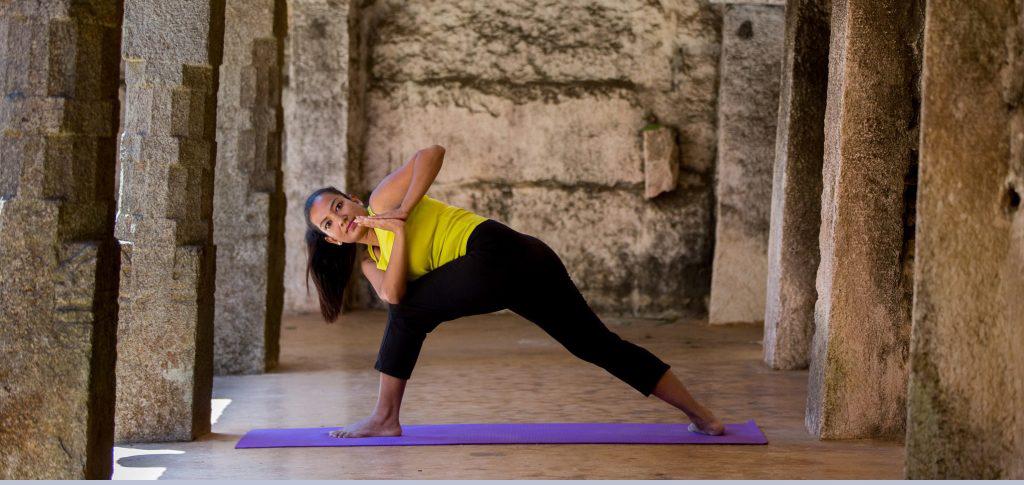
Physical Exercise
When our body does certain postures, with a certain rhythm, the mind slips into meditation. If you are very active or too well-rested, you cannot meditate. But in a state where the body has the right amount of tiredness, yet still not that tired; in that very delicate balance, your whole system slips into meditation.
2

Sensory Pleasure
Being 100 per cent engrossed in a particular sensory object brings you to a state of meditation.
Just lie down and keep looking at the sky. When you are completely engrossed in hearing music, a moment comes when the mind becomes still.
3

Breathing Exercises
Through breathing techniques and ‘pranayama’ the mind becomes quiet and still and you slip into meditation effortlessly. Just close your eyes and sit still after the breathing exercises.
4
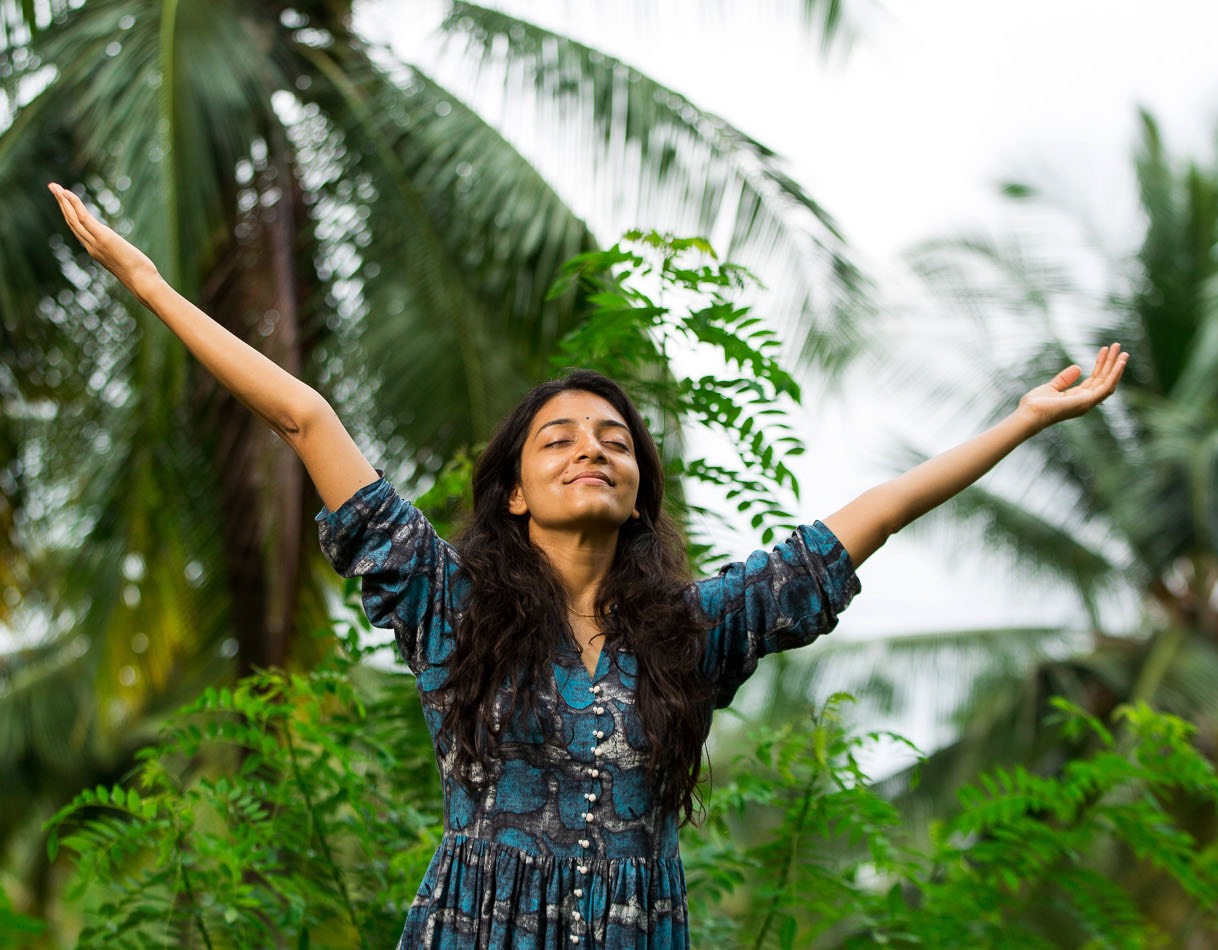
Emotional Peak
The fourth way is through both positive and negative emotions. When you feel utterly hopeless or very angry, you say, ‘I give up!’ It means, ‘This is it. I can’t take it anymore.’ During those moments, if you don’t slip into frustration or depression or violence, you will find that there is a moment where the mind stands still.
5
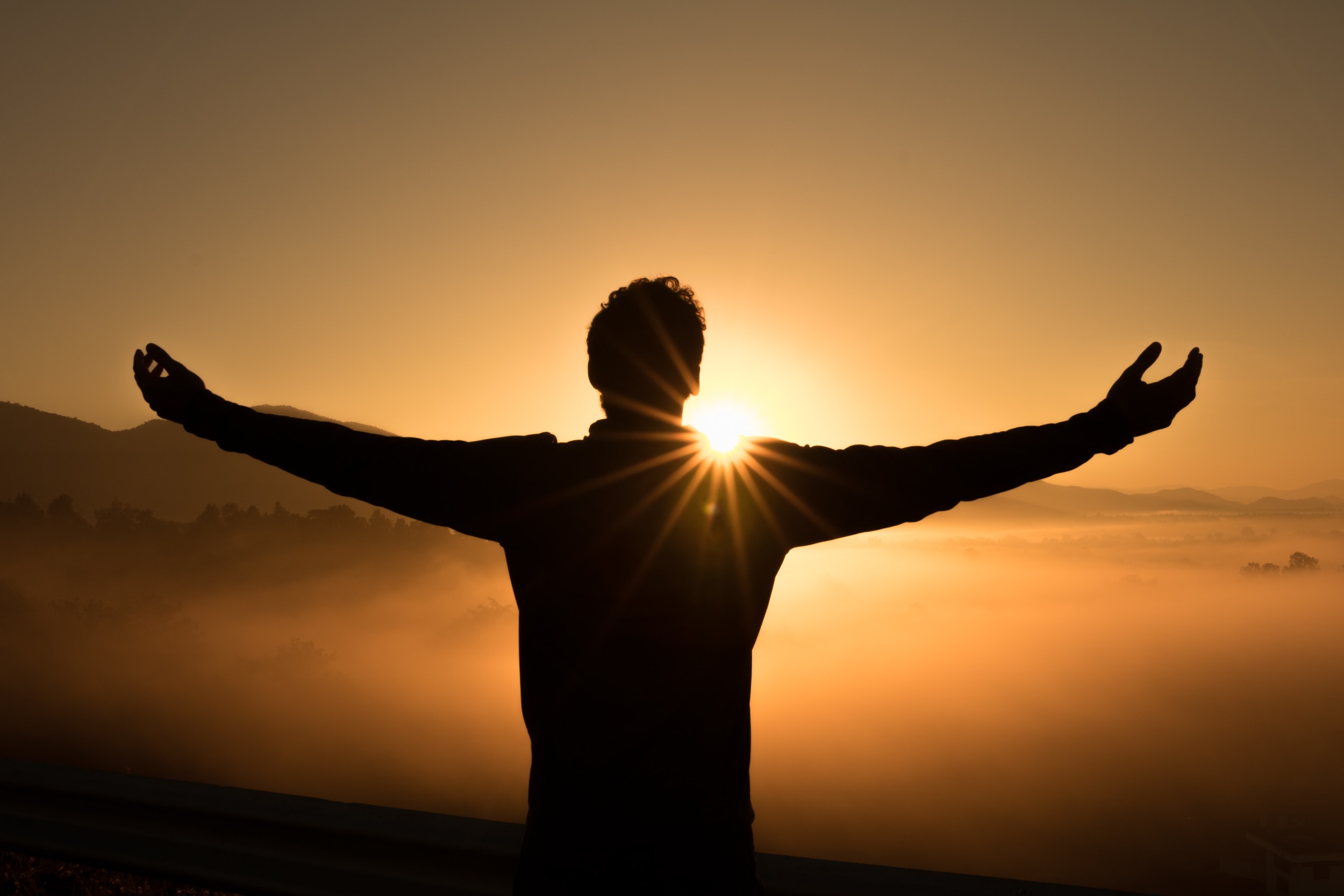
Broaden Your Vision, Deepen Your Roots
The fifth is through intellect, knowledge, and awareness. This is called Jnana Yoga. When you sit and know that this body is made up of billions of cells, something gets stimulated deep inside. The context of life immediately changes when you become aware of the magnanimity of the universe: Who are you? What are you? Where are you? How are you in reference to the unfathomable, infinite universe? Some shift happens within you.
6
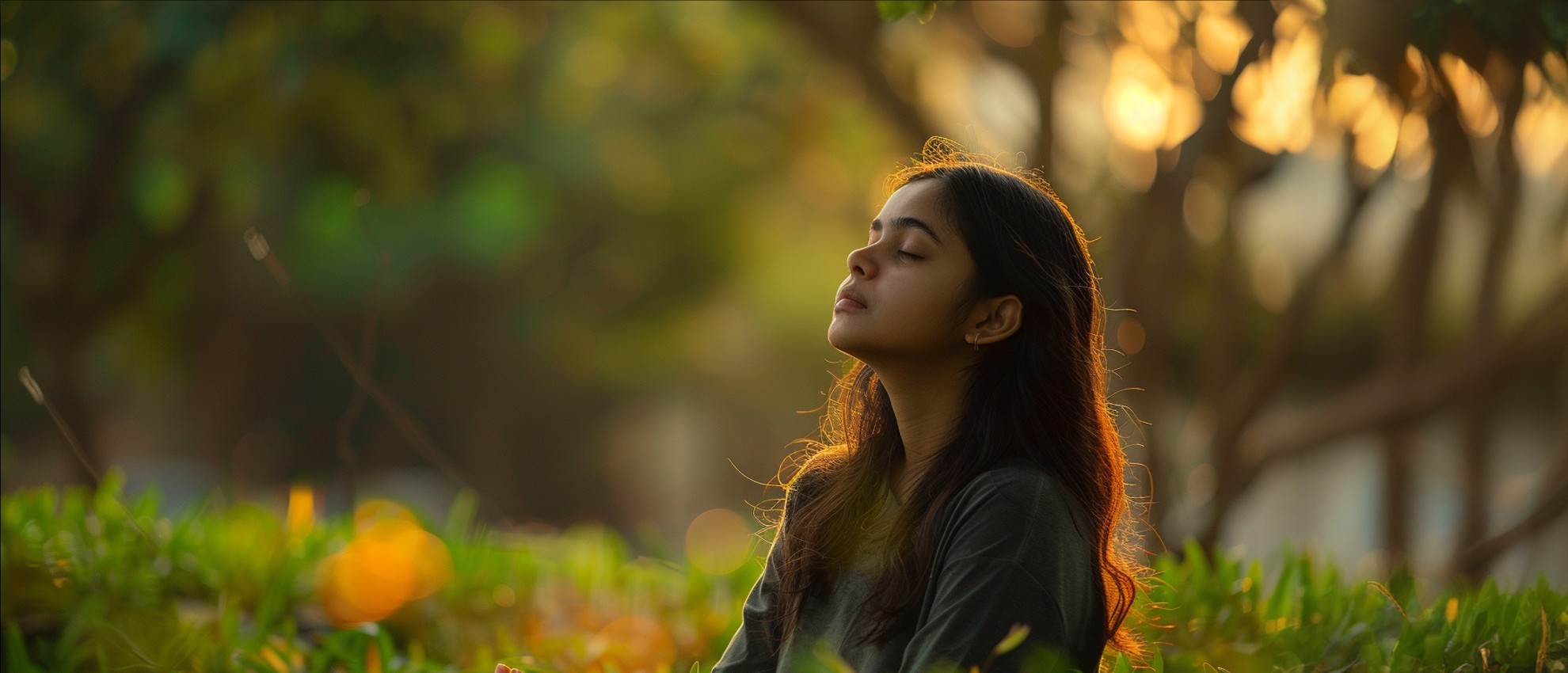
Total Rest
To meditate, you just need to know how to relax. If you are on a massage table, you let the masseur take care of you. Similarly, in meditation, you do nothing. Let nature or the spirit take care of you.
“I want nothing. I do nothing. I am nothing.”
Meditation is total rest; wanting nothing, being nothing, doing nothing and yet having total alertness effortlessly. If we follow this, then we are able to go deep in meditation.
Learn more about different the types of meditation.
Scientific Research on Meditation
Stress and Resilience: Meditation has been shown to significantly reduce stress hormones and balance the nervous system. Studies on Sudarshan Kriya breathing confirm reductions in cortisol and improved stress tolerance [Sharma 2017; Brown 2005].
Blood Pressure and Heart Health: Meditation has demonstrated reductions in blood pressure and improved heart health, with large trials suggesting benefits for long-term prevention [Schneider 2012].
Emotional Health and Anxiety Relief: Sahaj Samadhi and mantra-based meditation improve emotional regulation and mood, with research showing enhanced brain activation linked to calmness and focus [Travis 2009].
Sleep: Both Sudarshan Kriya and general meditation programs are linked with better sleep quality, deeper slow-wave sleep, and reduced insomnia risk [Vedamurthachar 2006].
Immunity and Cellular Health: Meditation has been associated with greater antioxidant activity, improved immune function, and enhanced overall vitality [Kjellgren 2007].
Across traditions—from breath practices to mantra meditation—research confirms that meditation offers measurable, wide-ranging benefits for mind, body, and spirit.
Learn the Art of Meditation
The Art of Living offers the Sahaj Samadhi Meditation program that will help you learn how to meditate on your own.
Our mind takes the form of the mantra that we take. “Manah Trayate Iti Mantrah” – a mantra is that which is brought to the mind again and again so the mind becomes the mantra. The mind should be filled with the mantra. The moment that happens, the mind is free from worry.
Sometimes we find ourselves thinking too much or worrying about things. When a thought arises in the mind, it is not easy to get rid of it. The thought keeps coming back again and again, and if you decide to do something else, you will feel uneasy until you finish with that thought. It becomes irritating like a grain of sand in the eye. Similarly, if you are unhappy about something, that sadness does not easily leave you. Many times you tell your mind that something is trivial and not to worry about it. But the mind or intellect does not pay any attention to that. Chanting a mantra can help.
A mantra has strength and spirit. When the mind is filled with the mantra, it becomes powerful. The power of every mantra can be felt in the form of vibrations.
Sahaj Samādhi Meditation is a mantra-based meditation. It is the easiest and most natural way of transcending thoughts and going into the source of our existence. It is like sowing a seed and closing the soil on top. The mantra is the seed.
We need more happier brains today since depression is taking over the planet Earth in a big way. Research by well-known geriatric psychiatrist Dr. Akshya Vasudev shows that while medication can help only 20% of people suffering from depression, Sahaj Samadhi meditation can benefit up to 70% of people.
All You Do…Is Nothing!
Meditation is being very natural, being at home with yourself and with everything else in the universe. You just need to know how to relax. If you are on a massage table, what do you do? You just let the masseur take care of you. It is the same in meditation. You do nothing, let nature take care of you. Let go of any effort because whatever we gain through effort is material and is limited. Effort is needed in the material world. If you don’t put effort, you can’t build a business or build a home, or build a career. It does not happen by just sitting and thinking. Everything in the material plane requires you to put in effort. But to attain something spiritual, you need to reverse it – no effort! A few moments of sitting and making no effort at all whatsoever is all that you need. For the spiritual plane, all effort should be let go of, and then you gain something bigger – much bigger!
Sahaj Samadhi Dhyana Yoga
References
- Zeidan F, Johnson SK, Diamond BJ, David Z, Goolkasian P. Mindfulness meditation improves cognition: Evidence of brief mental training. Consciousness and Cognition, 2010.
- Tang YY, Ma Y, Wang J, et al. Short-term meditation training improves attention and self-regulation. Proceedings of the National Academy of Sciences, 2007.
- Sharma H, Sen S, Singh A, Bhardwaj NK, Kochupillai V, Singh N. Sudharshan Kriya practitioners exhibit better antioxidant status and lower blood lactate levels. Indian J Physiol Pharmacol, 2017.
- Brown RP, Gerbarg PL. Sudarshan Kriya Yogic breathing in the treatment of stress, anxiety, and depression: Part II—clinical applications and guidelines. J Altern Complement Med, 2005.
- Schneider RH, Grim CE, Rainforth MV, et al. Stress reduction in the secondary prevention of cardiovascular disease: randomized, controlled trial of Transcendental Meditation and health education in African Americans. Circ Cardiovasc Qual Outcomes, 2012.
https://www.ahajournals.org/doi/full/10.1161/CIRCOUTCOMES.112.967406 - Travis F, Shear J. Focused attention, open monitoring, and automatic self-transcending: categories to organize meditations from Vedic, Buddhist, and Chinese traditions. Conscious Cogn, 2009.
- Vedamurthachar A, Janakiramaiah N, Hegde JM, et al. Antidepressant efficacy and hormonal effects of Sudarshan Kriya Yoga (SKY) in melancholia: a randomized comparison with electroconvulsive therapy. Biol Psychiatry, 2006.
Kjellgren A, Bood SA, Axelsson K, Norlander T, Saatcioglu F. Wellness through a comprehensive yogic breathing program – a controlled pilot trial. BMC Complement Altern Med, 2007.






